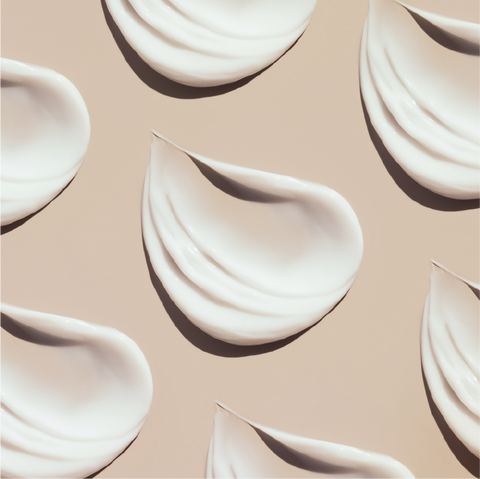
How It Works: Glowing Skin
When it comes to achieving glowing skin, there are a few things to keep in mind.
Generally, smoother, more evenly-textured skin reflects light better than skin that is rough or covered in blemishes. This is why your complexion can appear dull if your skin is dry, flaky, or if you are experiencing acne. Hyperpigmentation can also have an effect on the appearance of your overall complexion.
Your skin cells are constantly being shed and replaced, and this turnover helps to keep the skin looking smooth and radiant. Skin cells naturally renew themselves every 28 days or so, but this process slows down as we age. That’s why it’s important to use skincare products that encourage cell turnover, like our Advanced Retinol Treatment.
In addition, good circulation helps to deliver plentiful amounts of oxygen and nutrients to your skin cells, which in turn results in a healthy glow. There are a number of ways to increase your circulation, like through facial massages and by exercising regularly. Facial massages help to stimulate blood flow and promote lymphatic drainage, while exercise increases blood flow by delivering oxygen-rich blood to your muscles.
Your skin also plays a vital role in protecting from harmful effects of the environment. The outermost layer of the skin, known as the stratum corneum, acts as a barrier that prevents environmental aggressors like UVA/UVB rays from penetrating your skin. If your skin appears dull, dry or if you have experienced any skin inflammation or itchiness, this may mean that your skin barrier has been compromised. One common way the skin barrier can become damaged is by over-stripping, which can occur from over-washing or over-exfoliating. This will, in turn, make your skin more susceptible to irritation. In addition, skin conditions such as breakouts, redness, hyperpigmentation, and eczema can arise. A suitable moisturizer for your skin type will help keep your skin barrier function working as it should by helping to reinforce your skin barrier, and acting as a protective outer layer.
1. Dréno, B., et al. “Microbiome in Healthy Skin, Update for Dermatologists.” Journal of the European Academy of Dermatology and Venereology, vol. 30, no. 12, 13 Oct. 2016, pp. 2038–2047, 10.1111/jdv.13965.
2. Azelis. “Skin Glow - the Scientific Secrets behind That Dewy Skin.” Azelis.com, 2022, explore.azelis.com/en_US/my_pc/skin-glow-the-scientific-secrets-behind-that-dewy-skin. Accessed 21 Oct. 2022.
Generally, smoother, more evenly-textured skin reflects light better than skin that is rough or covered in blemishes. This is why your complexion can appear dull if your skin is dry, flaky, or if you are experiencing acne. Hyperpigmentation can also have an effect on the appearance of your overall complexion.
Your skin cells are constantly being shed and replaced, and this turnover helps to keep the skin looking smooth and radiant. Skin cells naturally renew themselves every 28 days or so, but this process slows down as we age. That’s why it’s important to use skincare products that encourage cell turnover, like our Advanced Retinol Treatment.
In addition, good circulation helps to deliver plentiful amounts of oxygen and nutrients to your skin cells, which in turn results in a healthy glow. There are a number of ways to increase your circulation, like through facial massages and by exercising regularly. Facial massages help to stimulate blood flow and promote lymphatic drainage, while exercise increases blood flow by delivering oxygen-rich blood to your muscles.
Your skin also plays a vital role in protecting from harmful effects of the environment. The outermost layer of the skin, known as the stratum corneum, acts as a barrier that prevents environmental aggressors like UVA/UVB rays from penetrating your skin. If your skin appears dull, dry or if you have experienced any skin inflammation or itchiness, this may mean that your skin barrier has been compromised. One common way the skin barrier can become damaged is by over-stripping, which can occur from over-washing or over-exfoliating. This will, in turn, make your skin more susceptible to irritation. In addition, skin conditions such as breakouts, redness, hyperpigmentation, and eczema can arise. A suitable moisturizer for your skin type will help keep your skin barrier function working as it should by helping to reinforce your skin barrier, and acting as a protective outer layer.
1. Dréno, B., et al. “Microbiome in Healthy Skin, Update for Dermatologists.” Journal of the European Academy of Dermatology and Venereology, vol. 30, no. 12, 13 Oct. 2016, pp. 2038–2047, 10.1111/jdv.13965.
2. Azelis. “Skin Glow - the Scientific Secrets behind That Dewy Skin.” Azelis.com, 2022, explore.azelis.com/en_US/my_pc/skin-glow-the-scientific-secrets-behind-that-dewy-skin. Accessed 21 Oct. 2022.
